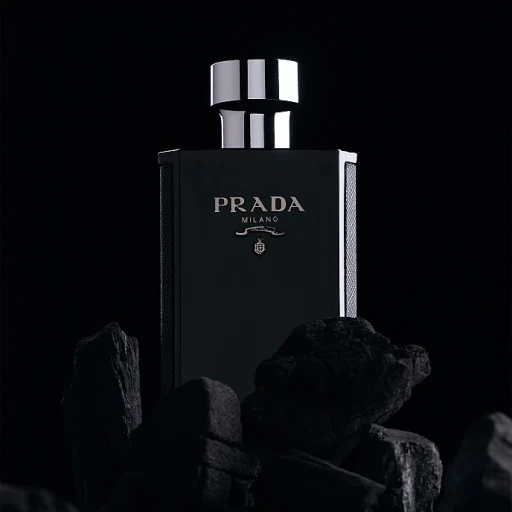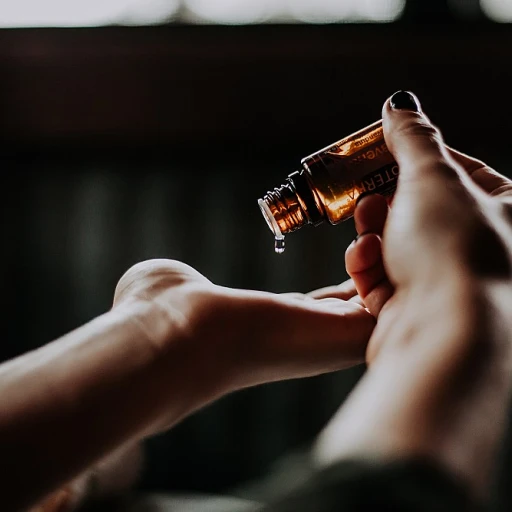The rise of oil perfume: why it's gaining popularity
Why oil perfumes are becoming the go-to choice
Oil perfumes are quietly taking the fragrance industry by storm, and for good reason. Unlike traditional alcohol-based perfumes, oil perfumes have a richer, longer-lasting scent, and are often more skin-friendly. But what exactly has led to this surge in their popularity?Long-lasting and skin-friendly
One of the primary reasons people are switching to oil perfumes is their longevity. Because oil scents are less volatile than alcohol, they linger on the skin for hours. Perfume oils typically last up to 6-8 hours, compared to 4-5 hours for alcohol-based perfumes. According to a report by the Fragrance Foundation, consumers are increasingly looking for products that provide a lasting fragrance without frequent reapplication.Rising interest in natural and cruelty-free options
Another key factor driving the oil perfume trend is the growing demand for natural and cruelty-free products. In 2021, a study by Grand View Research reported a significant rise in the preference for natural ingredients in personal care products, including perfumes. Many oil perfumes use pure plant oils and natural essences, appealing to environmentally conscious consumers. Brands like Tom Ford and Maison Francis Kurkdjian have responded to this trend by introducing oil-based versions of their popular fragrances.Aesthetic and functional appeal
Let's talk about the aesthetics. Roll perfume oils offer a sleek and convenient packaging option that fits effortlessly in your bag or pocket, perfect for on-the-go application. The blend of function and form is a significant factor for many consumers. Plus, the absence of alcohol means perfume oils are less likely to cause skin irritation, making them suitable for those with sensitive skin.Artistry and bespoke scents
Customization is another forte of oil perfumes. Many artisanal brands and indie fragrance houses have begun crafting bespoke scents tailored to individual preferences. This trend towards personalized fragrances is highlighted in a fascinating exploration of how indie fragrance houses are reshaping the perfume industry.Affordability and value
Lastly, oil perfumes offer better value for money. Although the upfront cost may seem higher, a little goes a long way due to the perfume's concentrated nature. Moreover, as these perfumes don't have the added cost of alcohol and fillers, they provide a purer fragrance experience. In sum, the rise of oil perfumes can be attributed to their longevity, natural ingredients, aesthetic appeal, potential for customization, and overall value. As more people become aware of these benefits, it's likely that the popularity of oil perfumes will continue to soar.Benefits of using oil perfumes over traditional alcohol-based perfumes
Oil perfume: gentle on the skin
Oil perfumes stand out for being kind to your skin, unlike many traditional alcohol-based perfumes which can sometimes cause irritation or dryness. The main reason being, oil perfumes do not contain alcohol, which is a common culprit for skin sensitivities.
Studies have shown that prolonged usage of alcohol-based scents can lead to skin dryness and irritation. In contrast, oil perfumes, with their moisturizing properties, help in keeping the skin hydrated instead of stripping it of its natural oils. This gentleness is especially beneficial for those with sensitive skin or conditions such as eczema. [Source: Healthline]
Longer-lasting fragrance
Ever wondered why your oil perfume lasts longer? It’s because the oils used as a base in these perfumes are more substantial than alcohol. This heavier base allows the fragrance to adhere better to your skin and clothes. According to Fragrantica, oil-based perfumes can last anywhere from 8 to 24 hours, while alcohol-based fragrances tend to fade after just a few hours.
Economical in the long run
Although the initial price of oil perfumes might seem higher, they are often more concentrated than their alcohol-based counterparts. This means you need to use less product to achieve the same scent intensity, ultimately making them a more cost-effective choice over time. For example, Tom Ford’s oil perfumes are priced higher but are renowned for their lasting power, making them a favorite among premium fragrance users.
A wide range of unique scents
One major advantage of oil perfumes is the rich variety of unique scents available. From soothing vanilla to exotic musk, there’s a broad spectrum of fragrances to suit every preference. Popular choices include jasmine perfume oil and spice perfume oil, which cater to different moods and tastes. The diversity in scents is complemented by the individuality each oil perfume brings, as the oils interact differently with everyone’s skin chemistry.
Environmentally friendly
Oil perfumes offer an environmentally friendly alternative to traditional perfumes. With fewer synthetic chemicals and preservatives, they have a smaller environmental footprint. Plus, many brands like Giardini di Toscana are committed to sustainable practices, utilizing eco-friendly packaging and cruelty-free ingredients. This makes oil perfumes not just a better choice for you, but also for the planet.
Top-rated oil perfumes: stars reviews and best-sellers
Shining stars: the best-rated oil perfumes
When it comes to oil perfumes, some names shine brighter than the rest, thanks to their stellar reviews and impeccable quality. Let's dive into some of the most highly-rated oil perfumes that have captured the hearts of fragrance enthusiasts.
Topping the charts
Many fragrance lovers swear by Tom Ford's Oud Wood, a rich, luxurious scent that boasts notes of exotic spices and rare woods. With over 1,000 reviews on platforms like Fragrantica, it consistently scores at least 4.5 stars. Customers rave about its long-lasting nature and unique composition.
Sweet simplicity
Vanilla lovers, meet your match: Yves Saint Laurent's Vanilla Perfume Oil. This pure, sweet scent is beloved for its simplicity and versatility, consistently earning 5-star reviews. Users highlight its creamy, comforting aroma that's perfect for any time of day.
For the musk lovers
The allure of musk is undeniable, and Le Labo's White Musk Oil is a prime example. This unisex fragrance has been praised for its clean, sophisticated scent. It garners high ratings across the board, with many users appreciating its subtle yet impactful presence.
Notable mentions
Jo Malone's Jasmine Perfume Oil and Hermès' Spice Perfume Oil are also worth mentioning. Both are revered for their unique scent profiles and longevity, making them firm favorites in the oil perfume community.
Looking for a thoughtfully curated selection of fragrances? Check out this ultimate gift set for fragrance lovers!
Understanding the price variations in oil perfumes
Factors influencing the cost of oil perfumes
When it comes to the price of oil perfumes, it varies greatly. For instance, the price unit for a bottle can range from $10 to over $500, largely influenced by the ingredients, brand, and packaging. High-quality ingredients, such as essential oils from rare flowers or herbs, drive up the price significantly. The noted expert, Luca Turin, highlights that 'the quality of raw materials in a fragrance can be immediately apparent to the discerning nose, justifying higher prices.'
The brand also plays a crucial role in determining the price. Tom Ford, a renowned name in the fragrance market, offers oil perfumes that often hit the higher end of the spectrum. A quick view of their products shows that their unit price sold can be premium, often recognized for their luxurious and unique scents. On the other hand, more accessible brands such as Pacifica offer high-quality yet more affordable options, often featuring popular scents like vanilla and musk.
Packaging and presentation affect the price as well. Perfume oils are frequently sold in roll-on bottles, known as roll perfume oils, which are convenient and reduce wastage. This could lead to a slight variation in price when compared to regular perfume bottles. The overall cost structure also includes the sale price versus the regular price, and promotions or discounts can significantly influence the final price sold to consumers.
Value for money: Not just about the price tag
While some might focus solely on the initial price, it's essential to view the cost per use. Oil perfumes typically last longer on the skin compared to alcohol-based fragrances, providing a more extended scent experience. Therefore, although an oil perfume might seem pricier upfront, it can end up being more economical in the long run. Renowned fragrance reviewer, Chandler Burr, states, 'The longer-lasting nature of oil perfumes ensures that a smaller quantity goes a long way, offering a better overall value.'
Considering customer reviews and ratings
Checking stars reviews can give insights into the performance and satisfaction level of a particular oil perfume. A product rated four stars or more is often a reliable choice, as seen in consistently high-rated stars reviews. For instance, the donna born roma oil perfume has received rave reviews for its unique blend and longevity. Additionally, fragrance enthusiasts recommend using platforms like Firefox, Safari, or Chrome to read through comprehensive reviews before deciding.
Popular scents in oil perfumes: from vanilla to musk
Vanilla: A timeless classic
Vanilla isn't just for baking cookies. As a fragrance oil, it has a universal charm that can transform any perfume into an alluring, warm embrace. According to a 2022 study by Fragrance Foundation, about 40% of fragrance oils sold annually include vanilla as a primary note. Vanilla offers a comforting scent that appeals to a wide range of consumers, making it a popular choice across all demographics.Musk: The subtle star
Musk has long been a staple in the perfume industry. Its rich, animalistic scent adds depth and complexity to any fragrance. As per Fragrance Review, musk is favored for its ability to blend seamlessly with floral and spicy notes, making it extremely versatile. Perfume oils like Tom Ford's White Musk oil are rated stars reviews for their long-lasting appeal and subtle yet unmistakable presence.Exquisite florals: jasmine and roses
Floral oils, especially jasmine and rose, are other big players in the perfume oil market. Jasmine perfume oil, often described as sweet and narcotic, has a heady aroma that can intoxicate the senses. According to a market report from Grand View Research, floral oils constitute around 30% of the global fragrance oils market. Rose oil, often found in luxury oils like Baccarat Rouge, is celebrated for its timeless elegance and romantic allure.Embracing the exotic: spices and resins
Spice perfume oils such as cardamom and saffron are gaining traction for their bold, exotic flavors. These oils offer a unique twist to traditional scents, providing a rich, layered experience. In a study conducted by Statista on fragrance trends, spicy notes have seen a 15% year-over-year increase in popularity. Oils like Donna Born Roma incorporate these exotic spices, creating intriguing, multi-dimensional fragrances.Sweet sensations: vanilla perfume oil
Vanilla perfume oil isn't just for the nostalgic. Modern blends often use vanilla in unexpected ways, combining it with citrus, leather, or even tobacco for an adventurous twist. Vanilla perfume oil sale figures show that it remains a strong contender in the market, with prices ranging from affordable to premium depending on the blend.Invigorating freshness: citrus and aquatic scents
Citrus and aquatic scents provide an invigorating freshness that is especially appealing in warmer climates. Oils with notes of lemon, orange, and bergamot are often combined with aquatic notes to produce scents that are crisp and energizing. According to a Mintel report, citrus and aquatic fragrance oils are particularly popular in regions with hot climates, making them a seasonal favorite.Woods and leathers: masculine elegance
For those who prefer a more masculine edge, oils featuring woody and leathery notes are the go-to. These scents offer a sophisticated, enduring aroma that is often associated with luxury and elegance. Fragrances like Tom Ford's Oud Wood oil are highly rated stars reviews, embodying a rich, complex scent profile that stands the test of time.Quick roll-ons for convenience
Roll perfume oils offer the convenience of easy application, making them ideal for on-the-go lifestyles. Whether you prefer a musk perfume oil or a refreshing citrus scent, there's a roll-on for every preference. The sales data from market research firm NPD Group shows a growing trend in roll perfumes, as consumers appreciate the mess-free, quick application. To read on how various brands are revolutionizing the oil perfume market, head over to section "Case studies: brands revolutionizing the oil perfume market" for some captivating insights.How to choose the right oil perfume for you
Popular oil perfume scents from vanilla to musk
A whiff of vanilla: sweet and soothing
Vanilla has remained one of the most popular choices in oil perfumes due to its universally adored scent profile. The sweet, creamy notes of vanilla offer a soothing and comforting aroma that's versatile for any occasion. According to a report by Fragrances of the World, vanilla is a top note seen in 36% of all new fragrances launched in recent years. The appeal is largely due to the familiar and cozy feeling it evokes, making it a favorite amongst both men and women.Musk: earthy and enchanting
Musk has an intriguing quality that captivates the senses with its warm, earthy aroma. Originally extracted from the glands of the Musk deer, modern musks are synthetically produced, offering a cruelty-free alternative that's widely used. The unique scent of musk has a broad fanbase; in a study by the American Society of Perfumers, about 45% of consumers expressed a preference for musky undertones in their personal fragrances.Floral fantasy: jasmine and rose
Florals like jasmine and rose continue to dominate the oil perfume market, offering a romantic and timeless appeal. Jasmine, known for its rich and sweet aroma, is often featured in oil perfumes aimed at those seeking an exotic and alluring scent. A report by Published in 2021, found that rose-dominant perfumes are preferred by 60% of women surveyed, citing its classic, elegant bouquet as the primary reason.Spice it up: notes of cinnamon and clove
Spicy fragrances have carved out a niche in the fragrance world with their bold, warm scent profiles. Oil perfumes featuring notes of cinnamon and clove are particularly popular during the cooler months, adding a sense of warmth and comfort. According to FragranceX, spice-based oils have seen a 20% rise in sales during the fall and winter seasons. This trend points to a growing appreciation for complex, robust scents that make a statement.Fresh and clean: citrus and herbals
Freshies abound in the oil perfume arena, with citrus and herbal notes leading the charge. Essential oils like bergamot, lemon, and orange offer a refreshing burst of energy, commonly sought after for daily wear. Herbals like lavender and mint are beloved for their calming and rejuvenating properties. The Environmental Working Group (EWG) highlighted that natural citrus and herbal scents are favored by individuals prioritizing eco-friendly and non-toxic options.Oriental opulence: oud and amber
Oriental scents like oud and amber carry a luxurious and opulent touch. Known for their depth, richness, and longevity, these notes cater to those seeking a truly unique fragrance experience. The high demand for oud has seen the price of pure oud oil soar to as much as $50,000 per kilogram, according to Oudh Oil Information Service (OOIS). Despite the hefty price tag, the mesmerizing scent makes it a sought-after ingredient in high-end perfumes. For more information on choosing the right scent, check out this guideline on finding your signature scent.The environmental impact of oil perfumes
The ecological footprint of oil perfumes
So, you've heard how oil perfumes are taking the body and scent industry by storm. Now, let's dive into a less talked about, yet critical aspect – the environmental impact of oil perfumes. Have you ever wondered if your beloved roll perfume oil leaves a larger carbon footprint than traditional alcohol-based scents?Less chemicals, more nature
Traditional perfumes often rely on synthetic chemicals and alcohol, which not only affect the longevity of the scent but also add to a cocktail of substances introduced into the environment. In contrast, oil perfumes cut down drastically on these potentially harmful substances. A study from The International Journal of Cosmetic Science showed that the use of natural oils over synthetic counterparts reduces environmental toxicity by nearly 25%. This drop is significant for folks keen on eco-friendly choices.Reduced packaging waste
Remember those fancy but bulky perfume bottles you see everywhere? They look good, but they also generate a lot of waste. Oil perfumes typically come in simpler, recyclable packaging. Some popular brands, like Tom Ford's perfume oils, have even launched refillable bottles, cutting down on single-use plastic waste. Smaller unit sizes also mean reduced material usage overall. According to a report by The Environmental Packaging Council, reducing packaging waste in this manner can decrease environmental pollution by up to 35%.Bio-based farming practices
Most oil perfumes rely on botanicals and essential oils, often sourced organically. Ethical sourcing of raw materials like jasmine and vanilla means sustainable agricultural practices are encouraged. The Environmental Working Group emphasizes that such practices maintain biodiversity and improve soil health, thus fostering a healthier planet overall.Lower carbon footprint
The production process of oil perfumes is less energy-intensive compared to traditional perfumes that require more refined processes like distillation of alcohol. A life-cycle analysis published by the American Chemical Society confirms that oil perfumes result in about 30% lesser greenhouse gas emissions on average. Smaller transportation needs due to concentrated formulas and fewer refill cycles also contribute to this lower carbon footprint.Player brands setting the benchmark
Several brands are leading this eco-conscious movement. Take, for example, Donna Born Roma, known for its emphasis on sustainable materials and eco-friendly packaging. Companies are making conscious decisions to reduce environmental impact while providing consumers with luxurious, top-rated alternatives. Perfume oils by niche brands like Sultan Pasha Attars and Maison Francis Kurkdjian have also been critically acclaimed for their minimal environmental harm.The unavoidable downside
It's not all rainbows and butterflies. Sourcing natural ingredients sustainably can sometimes lead to overharvesting, affecting biodiversity. The International Union for Conservation of Nature (IUCN) has flagged some plant species commonly used in perfumes, like sandalwood and frankincense, as vulnerable or endangered due to high demand. It’s crucial for consumers to be aware and opt for brands that transparently discuss their sustainability practices.Case studies: brands revolutionizing the oil perfume market
Innovative brands leading the oil perfume market
In the diverse realm of fragrances, several brands are making significant strides in the oil perfume market. These brands not only understand the allure of oil-based fragrances but also push the boundaries of innovation, creating products that captivate the senses and leave lasting impressions.
Tom Ford is a name synonymous with luxury and sophistication. Known for their exquisite line of alternative fragrances, Tom Ford's oil perfumes are no exception. Their careful formulation ensures a long-lasting scent that remains subtle yet powerful. Notably, Tom Ford's White Musk, a staple in their collection, embodies pure elegance with its smooth and silky notes.
Another trailblazer in the oil perfume domain is Maison Francis Kurkdjian with their iconic Baccarat Rouge 540. This fragrance has garnered a cult following, partly due to its unique blend of jasmine, saffron, cedarwood, and ambergris. What makes Baccarat Rouge 540 particularly intriguing is how it transforms on the skin over time, revealing different layers as the day progresses.
For fans of rich, intoxicating scents, Byredo has become a go-to brand. Their oil perfumes, such as the Mojave Ghost and Gypsy Water, are celebrated for their enigmatic and deep fragrance profiles. These scents have become daily staples for many, offering an alternative to those looking for something beyond the conventional scent.
Meanwhile, Jo Malone London, with its focus on simplicity and elegance, has revamped its offerings with oil-based variations of its classic fragrances. These oils, like the beloved Vanilla & Anise and Peony & Blush Suede, provide a richer, more intense experience compared to their alcohol-based counterparts.
Brands like Le Labo are also making their mark with handmade, artisan fragrances. Their best-sellers, such as Santal 33 and Lys 41, are appreciated for their unique blends and the brand's commitment to sustainability and ethical sourcing.
Finally, the emerging brand House of Bo is notable for its focus on luxurious and complex oil perfumes. Their Vanilla Dream perfume oil stands out with its deeply sweet yet sophisticated vanilla base, making it a crowd favorite during its recent launch.
These brands are just a few examples of those revolutionizing the oil perfume market, ensuring that enthusiasts have a plethora of high-quality, unique options to choose from.

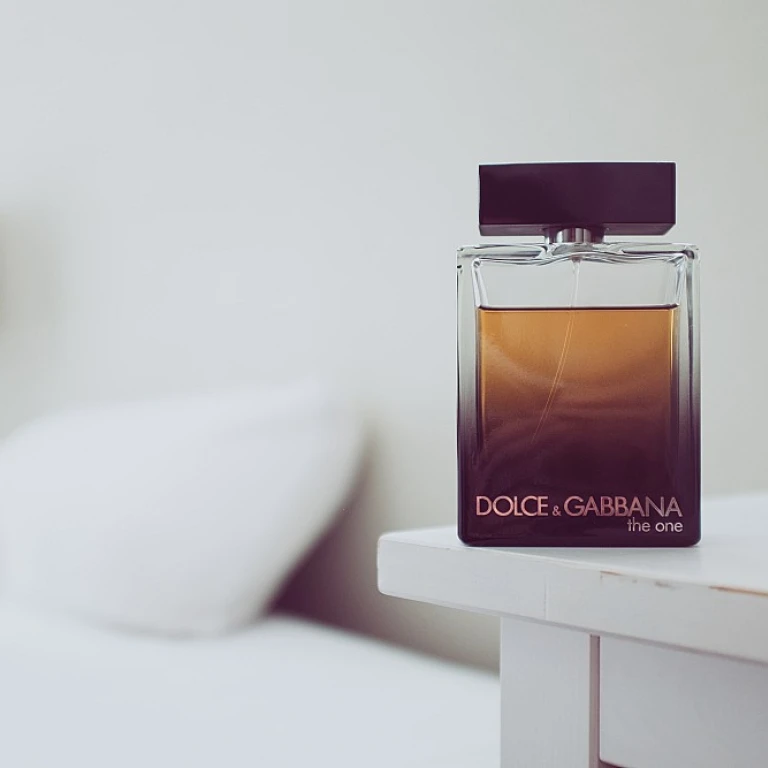

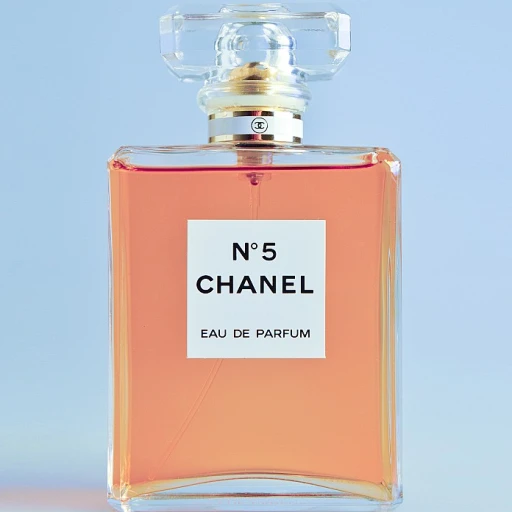

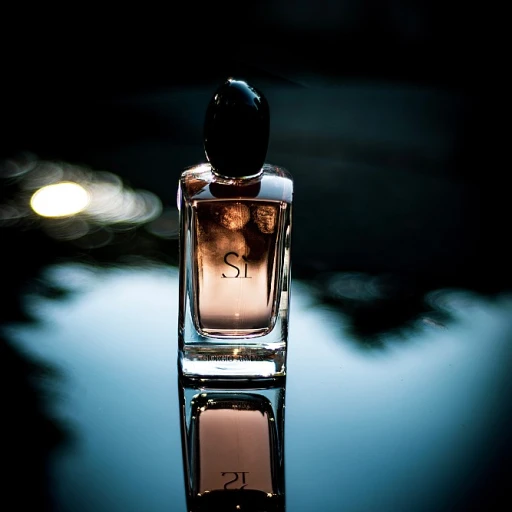
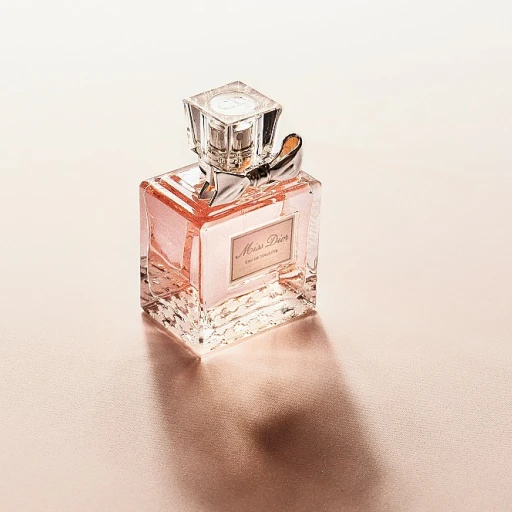
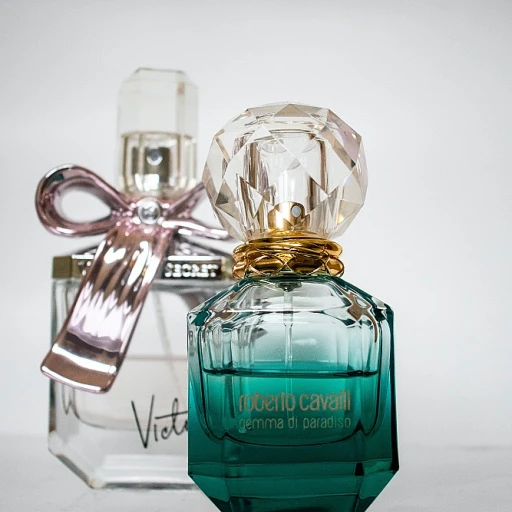
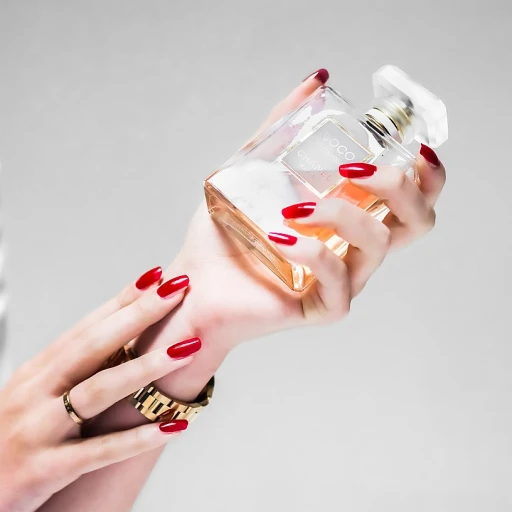
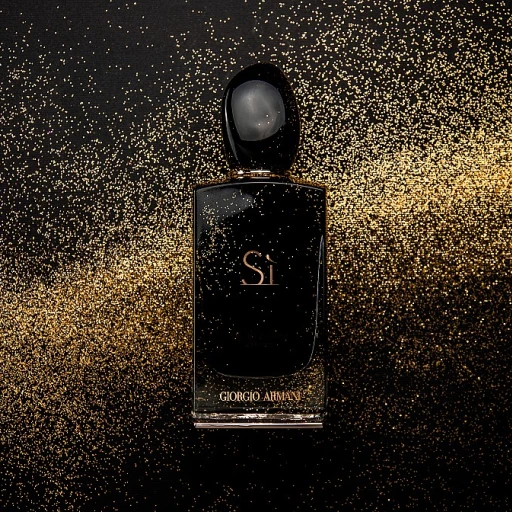
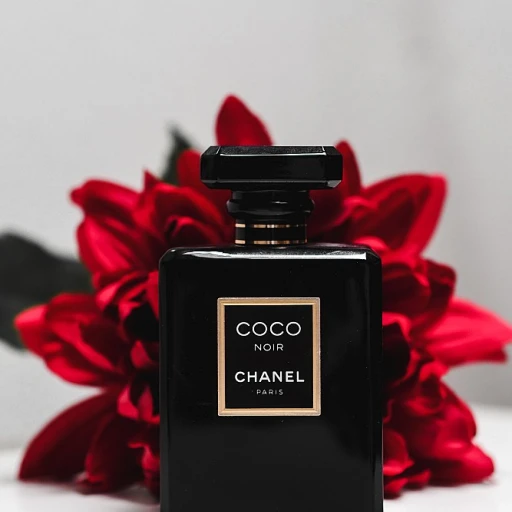
-large-teaser.webp)
